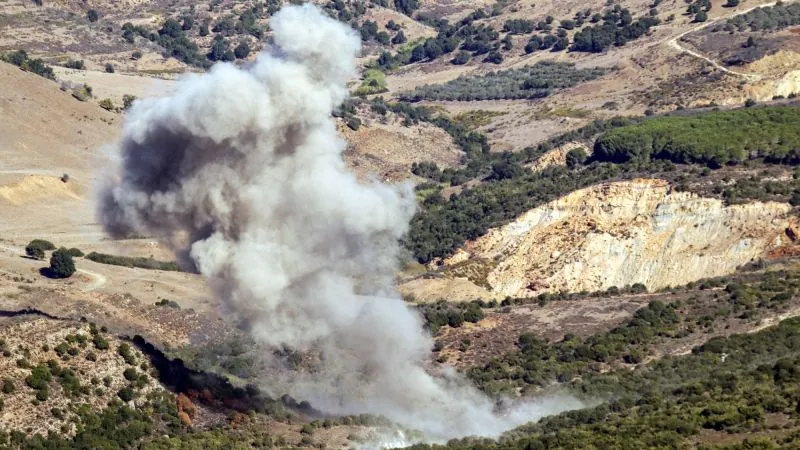
Tensions Flare: Israel Claims Hezbollah's Withdrawal is Crucial for Ceasefire Survival
2025-01-06
Author: Ying
Israel has issued a stark warning regarding the fragile ceasefire with Hezbollah, emphasizing that the truce could disintegrate if the Iran-backed group fails to withdraw its forces beyond the Litani River in southern Lebanon. This condition is one of the critical tenets of the ceasefire agreement that took effect on November 27.
Despite some reports of the ceasefire holding, both Israel and Hezbollah have engaged in mutual accusations over violations of the terms of the agreement. The truce stipulates a cessation of hostilities for at least 60 days, during which Hezbollah is required to pull back its fighters 40 kilometers (25 miles) from the Israel-Lebanon border while Israeli ground forces must also leave Lebanese territory.
The ceasefire's framework mandates that, before January 26, the only armed entities in southern Lebanon should be the Lebanese military and United Nations peacekeeping forces.
On Sunday, Israeli Defense Minister Israel Katz made a decisive statement, saying, “If Hezbollah does not withdraw beyond the Litani River, there will be no agreement.” He reiterated that Israel aims to uphold the ceasefire for the safety of residents in northern Israel. However, he stressed the necessity of Hezbollah’s complete withdrawal and the dismantling of its weapons and infrastructure by the Lebanese Armed Forces, actions that have reportedly not been realized yet.
Hezbollah's leadership has indicated a differing stance. Naim Qassem, a prominent figure within the group, warned that the decision to adhere to the truce’s terms rests solely with them. “Our patience regarding Israeli violations of the ceasefire might run out or it may continue as is… and when we decide to act, you will see it immediately,” he stated.
Since the ceasefire came into force, both sides have exchanged strikes, with Israel conducting operations in southern Lebanon, and Hezbollah retaliating by targeting Israeli-held territories, justifying their actions on grounds of Israeli infractions.
Notably, less than a week after the ceasefire began, the United Nations Interim Force in Lebanon (UNIFIL) reported that Israel had breached the ceasefire agreement “approximately 100 times.” UNIFIL also disclosed alarming incidents, including sightings of Israeli bulldozers destroying infrastructure perceived as linked to the ceasefire framework, such as UNIFIL property and an observation tower of the Lebanese Armed Forces.
UNIFIL condemned these actions, reiterating that they constitute a blatant violation of United Nations Security Council resolution 1701, which calls for an end to hostilities between Israel and Hezbollah.
As the situation remains tense, the international community watches closely, hoping for a resolution that ensures stability in a region long plagued by conflict. The onus is on both Israel and Hezbollah to act responsibly to avoid a potential escalation that could have dire consequences for both sides and the broader Middle Eastern landscape. Stay tuned for updates on the evolving situation and potential diplomatic efforts aimed at reinstating peace.


 Brasil (PT)
Brasil (PT)
 Canada (EN)
Canada (EN)
 Chile (ES)
Chile (ES)
 Česko (CS)
Česko (CS)
 대한민국 (KO)
대한민국 (KO)
 España (ES)
España (ES)
 France (FR)
France (FR)
 Hong Kong (EN)
Hong Kong (EN)
 Italia (IT)
Italia (IT)
 日本 (JA)
日本 (JA)
 Magyarország (HU)
Magyarország (HU)
 Norge (NO)
Norge (NO)
 Polska (PL)
Polska (PL)
 Schweiz (DE)
Schweiz (DE)
 Singapore (EN)
Singapore (EN)
 Sverige (SV)
Sverige (SV)
 Suomi (FI)
Suomi (FI)
 Türkiye (TR)
Türkiye (TR)
 الإمارات العربية المتحدة (AR)
الإمارات العربية المتحدة (AR)